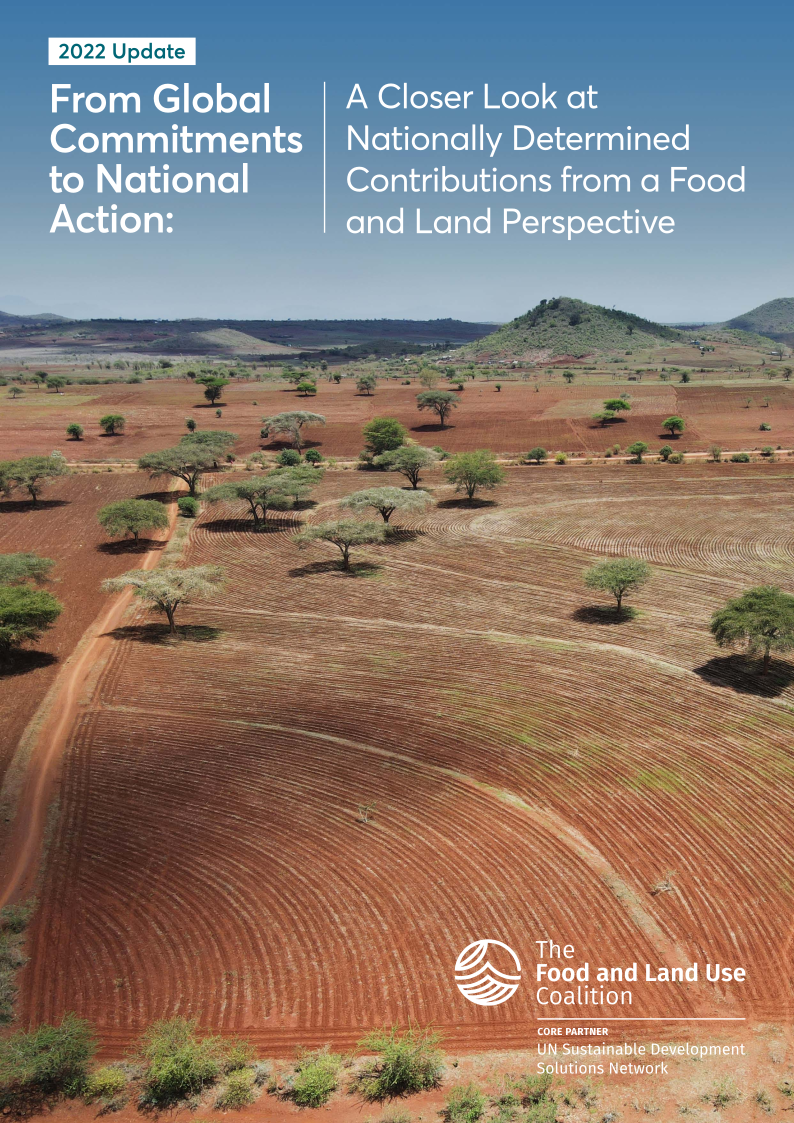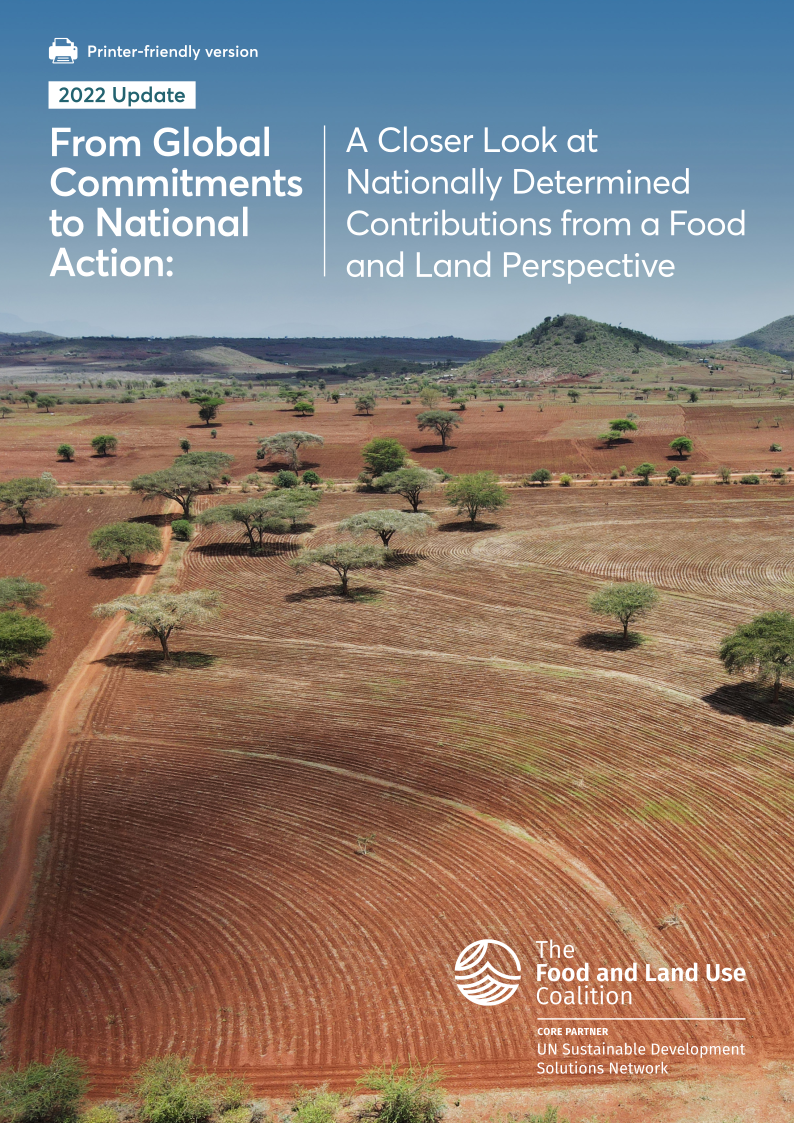2022 UPDATE
From Global Commitments to National Action:
A Closer Look at Nationally Determined Contributions from a Food and Land Perspective
The FELD Action Tracker as a strategic initiative of the Food and Land Use Coalition (FOLU) tracks developments around food and land use, globally and in key countries. Ahead of COP27 – the 27th Conference of Parties under the United Nations Framework Convention on Climate Change (UNFCCC) – the team updated and expanded its systematic analysis of nationally determined contributions issued in the previous year, with a focus on answering the following two questions:
NDCs are the center of the global climate agenda, but they are also critically relevant to assess countries’ commitments, plans and understanding of food and land use related aspects of the climate crisis.
Seven years on from the Paris Agreement, the world is still dangerously off track, in a geopolitical context that has become even more challenging since COP26 concluded 1 year ago. While some areas and sectors are making rapid progress on the road to decarbonisation, including energy and transport, few countries have recognized – or taken actively into account – the need and opportunities of food and land use transformation.
That said, the updated review of NDCs also reveals substantial progress and improvements, and a wide range of notable examples in the NDCs for how countries are already or planning to take action. COP27 is a critical moment for collective climate action, but implementation and delivery of commitments needs to happen in countries and across sectors. Most importantly, all countries need to put in place dedicated processes to translate national commitments into focused strategies and practical plans, policies and programmes. The evidence confirmed by the IPCC is clear:
The Food, Environment, Land and Development (FELD) Action Tracker is a strategic initiative under the Food and Land Use Coalition (FOLU) to analyse policies, track action and assess progress towards sustainable food and land use, as part of broader efforts under the Paris Climate Agreement and the Sustainable Development Goals (SDGs).
The analyses and resources on this website are licensed under a CC-BY-NC-ND 4.0 license.
For more information, questions or other inquires, email us at info.feld@unsdsn.org.







